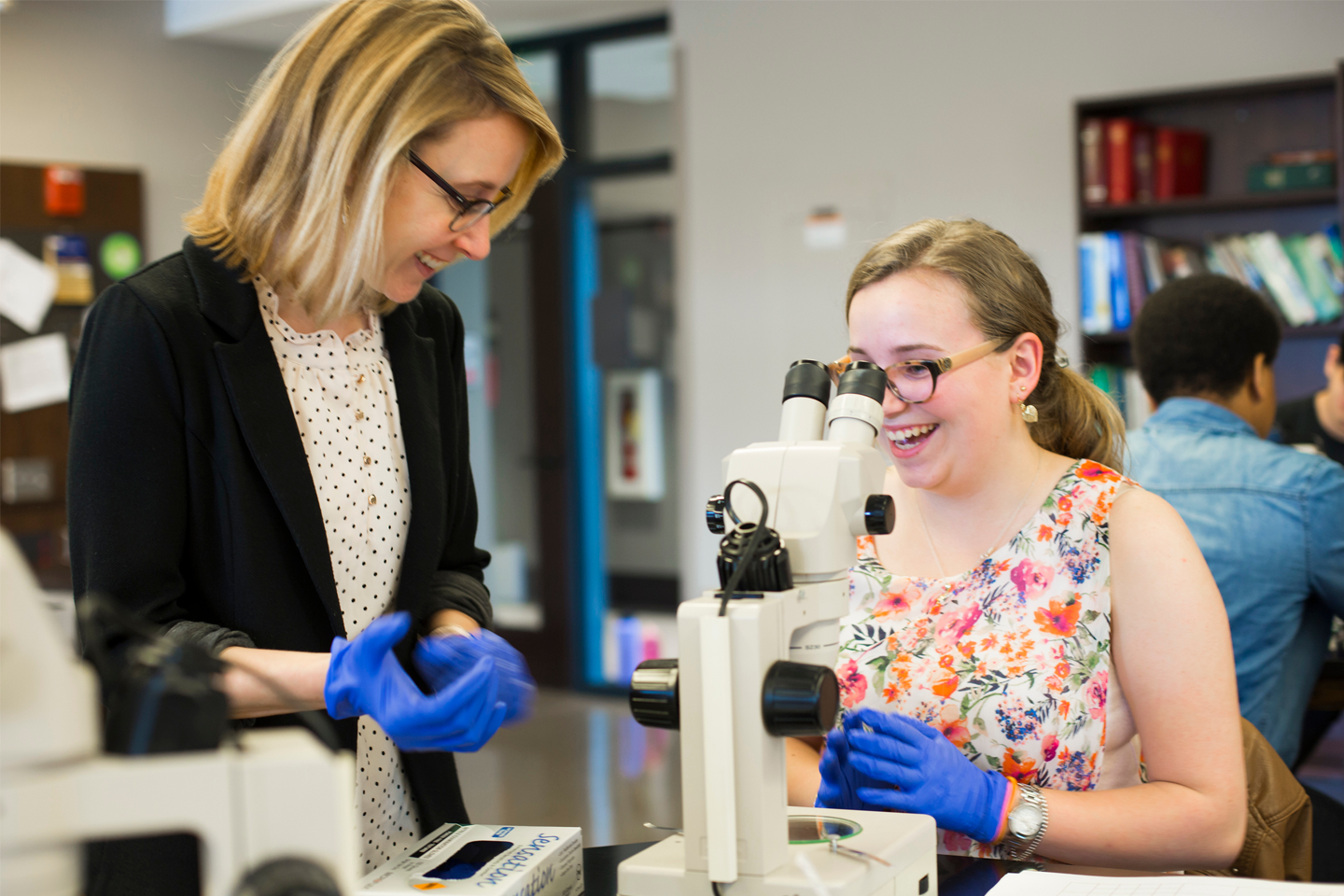Oxford’s Sarah Fankhauser Earns a $1.2 Million National Science Foundation Grant for Innovative Preprint Platform

Oxford Associate Professor Sarah Fankhauser has been awarded a $1.2 million National Science Foundation (NSF) grant to transform the way that young scientists communicate. The grant, from the Division of Research on Learning, marks the largest grant awarded to a principal investigator at the college.
For Fankhauser, scientific inquiry is at the heart of discovery and understanding, and helping students embrace the potential of incorporating feedback could revolutionize the way young scientists communicate.
“The goal of this project is to engage students in authentic science communication innovations through the implementation of a preprint and peer review platform specifically designed for high school students. To achieve this, the team will complete, test, and research a preprint platform named eiRxiv (Emerging Investigators Archive, pronounced e-i-aarkive). This platform will empower high school students to share their scientific research, receive transparent constructive feedback from scientists, and become part of a peer scientific community.”
With Co-Principal Investigators Gary McDowell and Scott Soldat-Valenzuela, Fankhauser will guide the project to transform high school student learning and participation in science communication innovations.
“This project aims to develop, test, and evaluate an innovative preprint platform specifically designed to support the science communication and community engagement of early career scientists,” Fankhauser explains. “The grant represents a continuation of my prior work in the field and seeks to introduce authentic and cutting-edge communication practices to younger researchers.”
Through this groundbreaking work, Fankhauser hopes to advance the way young researchers approach communication of their findings. “Collaborative writing and editing with other individuals is a powerful tool,” she says.
Previously, Fankhauser founded The Journal of Emerging Investigators (JEI), an open-access journal that publishes original research in the biological and physical sciences that is written by middle and high school students. As a peer-reviewed scientific journal, the non-profit organization had roots in the student work produced for science fairs.
“Young scientists gathered data and reached conclusions, but when those science fairs concluded, that work often went into the trash,” Fankhauser points out. “I wanted to create a way that these young scientists’ work could live on, receive critical reviews from peers and editors, and be shared more broadly.”
The publish or perish phenomenon that faces researchers became a driving factor in developing the unique preprint platform at the center of Fankhauser’s grant research. “We want students to gain the benefit of brilliant minds from around the world,” she notes. “Young scientists often do not think of science or science communication as a collaborative space. Our project team hypothesizes that students will make significant gains in the metrics of science literacy and science disciplinary literacy, which will facilitate their development along a continuum of science identity.”
Constructing and Refining Bold Ideas through Inquiry
In a collaborative effort with Co-Investigators McDowell and Soldat-Valenzuela, the team will employ various research methods to gather data, including targeted surveys. “Preprints are huge in the biomedical field,” Fankhauser notes. “Preprint platforms become invaluable to scientists who share their academic papers prior to official publication.”
Why is this practice beneficial? “As a scientist, I always thought that to learn more knowledge you had to quantify data and conduct experiments. But there is a real richness of data in other forms―talking to people, interviewing them, and surveying their knowledge and needs,” she says. “This empowered a shift in my mindset and helped me engage with the scientific community. Surveying became another valid way to understand my own scientific goals.”
To read more about on the Fankhauser, McDowell, and Soldat-Valenzuela’s National Science Foundation grant to investigate a preprint platform for emerging scientists, please visit here. If you are an Oxford or Emory student who would like to work with Fankhauser’s team on this ongoing grant research, please contact her at sarah.fankhauser@emory.edu.